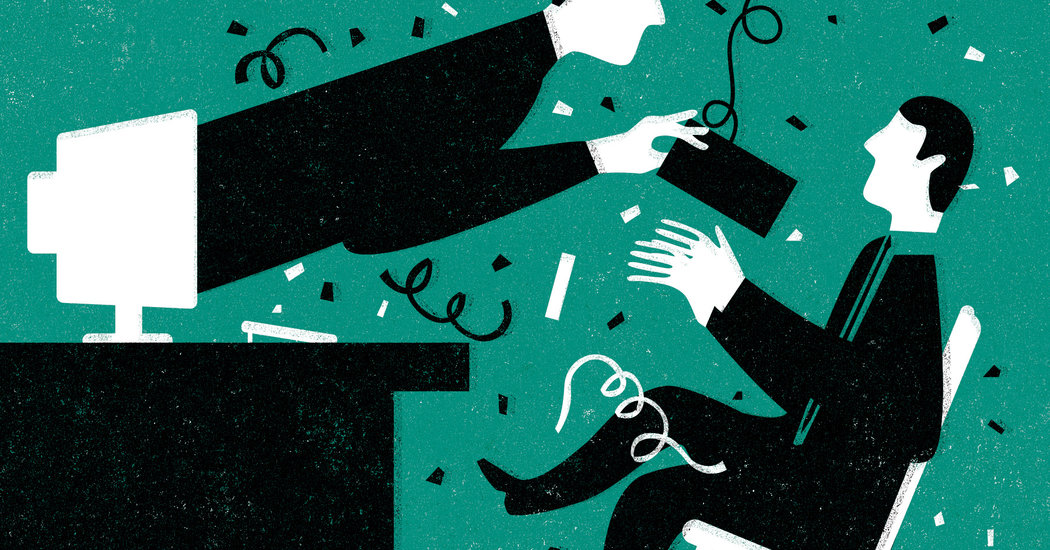
When Shannon Franklin, an engineering headhunter in Tampa, Fla., turned 40 this past January, she expected “Happy birthday!” text messages and Facebook posts from high school and college acquaintances. She even anticipated hearing from her mom’s friends — and her ex-boyfriends, too.
One former beau inquisitively prompted, “Forty’s the big one. Still not married?” said Ms. Franklin, who responded “not yet” with a relaxed attitude.
What she didn’t foresee was a person she knew mostly from social media using her special day as entry to a beauty product pitch.
A woman from Ms. Franklin’s past saw the birthday online and then requested she buy something over Facebook Messenger. “That is probably the most annoying, because it’s leveraging a former acquaintance or friendship in order to help them sell their stuff,” Ms. Franklin said.
The manipulative method wasn’t as “obnoxiously apparent,” said Ms. Franklin, because it happened over Facebook Messenger. But, she still recognized the end goal: a sale.
Every day, more than 45 million people extend birthday wishes on Facebook, according to the company. An unknown number of these are transactional. And some of those are awkward or unpleasant. (Ms. Franklin gladly welcomes gift cards from her attorney and birthday emails from her financial adviser, however.)
Barre Forte, a ballet-inspired fitness studio with locations in Colorado, Kansas and South Dakota, gives attendees a free class or a retail item discount via email during their respective birthday weeks.
“We try to be as genuine as possible, because we really try to connect with all of our clients,” said Nadia Walker, a founder and partner of Barre Forte. “It is an automatic report that’s run, so, it is going to poll people that haven’t been in.”
Ms. Walker estimates 4,500 people receive an invitation to celebrate their birthdays in the company of her company. The promotion’s purpose is to acknowledge the client and the occasion. “Of course, I think there’s always a marketing tactic behind anything,” she said.
Other brands offering items, experiences and services complimentary, or at a marked-down cost on birthdays, include Kiehl’s, the skin care company; Swerve Fitness, a chain of indoor cycling studios in New York City and Pinkberry, the frozen yogurt company with locations across the U.S.
During birth months, weeks and days, digital and physical mailboxes can become congested with celebratory coupons., a supposed benefit of signing up for subscription lists and reward programs.
But these can contribute to the vague feeling of malaise surrounding one’s birthday in the digital age, when greetings come easily, but perhaps not thoughtfully, thanks to automated calendar reminders.
“When we’re receiving birthday messages, that’s a personal thing. We feel like we’re seen and we mean something to that person,” said Dr. Nicole Beurkens, a clinical psychologist at Horizons Developmental Resource Center in Caledonia, Mich. “The tone of that really changes if we start to feel like the other person is just using that for themselves. That doesn’t feel good.”
Human beings enjoy finding ways to make everything about themselves, Dr. Beurkens said. “We are the No. 1 person we each like to think about. The reality is that we’re all self-absorbed to a certain extent.”
Even friendly updates can spark anxiety or overwhelming feelings for the receiver, especially if there are many people contacting them within the same 24-hour period.
“Wish a happy birthday, extend those greetings and just leave it at that. Don’t ask to catch up under false pretenses or dig for personal information,” Dr. Beurkens advised. Reach out on a later date if needed. “Say, ‘Hey, I know it’s your birthday last week. That reminded me I’ve been meaning to follow up with you about this other thing. Do you have time to talk about that?’”
Wayne Pernell, a global executive coach in San Francisco with a doctorate in clinical psychology, advised avoiding difficult subjects like weight, surgery and bankruptcy when communicating electronically during birthdays.
“The etiquette for the bombarded person would be to say, ‘Hey, ask me again next week.’” Mr. Pernell said. “Basically what you’re saying is, ‘I’ve heard the request. It’s not on my radar. Circle back to me if you really want it.’”
Or you could treat yourself to the greatest present of all: blocking and unsubscribing.







